With the ongoing humanitarian crisis in Palestine, I wish to dedicate this forward to the charities helping support those suffering under such painful occupation and oppression. Please consider donating to the UNRWA or WAQFOREVER to help the vital aid for Palestinians continue.
downt imparted an impressive first impression when I first discovered them through their first EP cassette release via Gerpfast Records in January 2022. Following up a highly anticipated cassette release of MASS OF THE FERMENTING DREG’s ‘No New World’ with a band I didn’t yet recognise made me realise I must be missing out on something. This realisation was only reiterated when I noticed that the limited edition of downt’s cassette had sold out mere moments after pre-orders went up.
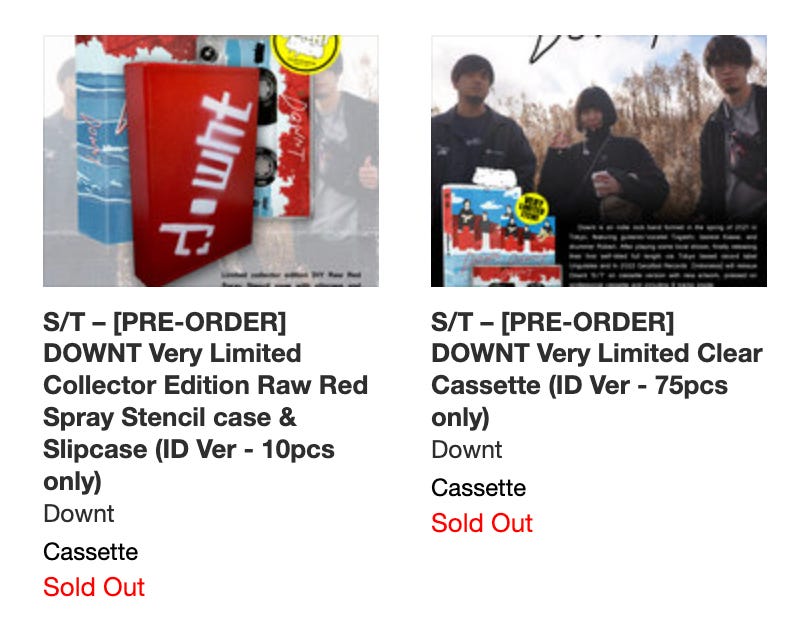
In what felt like a flash, their second EP ‘Sakana’ released later in 2022, and both EPs were even released internationally in vinyl format with a rearranged tracklist. On first listen, I was so captivated by the gentle pairing of, and transition between, ‘-.5.-‘ and ‘I couldn’t have done this without you’, that I now cite this as the moment when I began to feel there were immediate, great things to come.
Even throughout 2023, their name still stuck in my mind as a band to watch with anticipation. I remember seeing the thumbnail for their single ‘Jyusan Gatsu’ (‘13th Month’) in my Twitter newsfeed again and again throughout summer, which I found so much happiness in because the colours and setting of the video were a bold highlight and expansion of downt’s image, with it being their first specially made music video for a song.
Funnily enough, plans for this interview were underway even before ‘Underlight and Aftertime’ had been announced. The timing couldn’t have been more perfect, as I suddenly had a wealth of new material to listen to and ask about, alongside the accumulated impressions and contemplations I’d accrued since first hearing their first release. It’s been some time since it took place (due to a whole host of time-occupying factors, including university and my visit to Tokyo) but, as a result, it’s all the more meaningful and rewarding to finally be able to share this dialogue with paragons of Tokyo’s current, and future, music landscapes.
An Interview with downt
-
1.
Mustafa: “Hello downt! It’s really really awesome to meet you! How are you all doing? I know you played at Synchronicity yesterday, so I was excited to hear how it went!”
Togashi: “It was really fun! There was a huge number of people that wanted to see us perform yesterday, so we sadly had to put a restriction on the admission numbers! We hope that the people couldn’t attend yesterday will be able to see us perform in the future! Yesterday, we spoke about enjoying the moment and enjoying the sound we create, not just focusing on making everything perfect. We’re still trying to figure things out, but we feel like we’ve settled on a good balance of strictness and enjoyment with our live shows!”
Mustafa: “I saw some clips that Robert had uploaded, and I noticed that the audience was quite still and didn’t move around much, which I didn’t expect from the kind of audiences at Synchronicity! Are those the audiences that you’re used to, ones that are still and pay lots of close attention?”
Togashi: “Yeah, our audiences tend to be really still and focus on listening attentively to our music. Actually yesterday, as you saw, there was some stillness in the audience, but we also got some cheering between songs, like someone in the audience went….*Togashi mimics a loud whistle and laughs*! We don’t get that often, usually our audience listens and remains quiet, focusing fully on the music, so that was surprising! But yes, our audience tends to be somewhat still!”
Robert: “As Togashi mentioned, I was really familiar with the audiences being still and not responding much, but yesterday we got some cheering and applause, so the audience was still quite reactive and enthusiastic!
As for the live performance itself: it was our second time playing at Synchronicity. This time we were on a new stage we’ve never performed on before. There were some intense moments during the performance, and there’s still room for improvement, but it was still fun!”
Robert is one of the drummers who have completely changed the way I view the drums as an instrument and form of expression. There’s always an uninhibited, unrelenting, and uncompromising rigour that’s visible, clear as day, on his face whenever he plays, and even the band themselves are aware of this, given their decision to semi-seriously, semi-jokingly feature his expression as the thumbnail for their following performance:
-
2.
Mustafa: “Congratulations on your recent release of Underlight and Aftertime! I found it to be a really, really interesting album, especially compared to your previous works, and I’ve listened to it *so* many times to experience the many layers to the work, which I’ve really enjoyed! What has the reception been like to the album?”
Togashi: “From the reactions of the people around me, some people said it’s really different from our earlier work! I try not to think too much about how people will react to our work, but at the same time I was curious about what people would think! I’ve had positive reviews from people around me, so that feels really good!”
Robert: “It’s really hard to get the precise views/reactions from the people around us, but seeing people’s reactions on SNS makes us feel like we’ve reached out to new people, as we’re seeing impressions on the album from accounts we’ve never seen on our SNS before.”
Mustafa: “Going into the background of the album’s creation: this is the first full album you’ve released, and the first album released under P-Vine. Were there any specific challenges you faced when you set out to record this album, and were there any experiences you encountered for the first time compared to your previous two releases?”
Togashi: “We’ve faced a lot of difficulties with this one! The production of this album: we’ve been writing and working on music since right after the release of ‘3’, our last single, but at one point all the songs that I was writing would get rejected. One of the reasons is that the song melodies didn’t match up with the sound of the band.
In my background: I’m a really song-oriented writer. I really like singing songs, so I tend to write really melodic songs, but the sound of the band overall is an alternative-rock style, so they didn’t really match up. In order to overcome that, I listened to a lot of music and really changed up the way I wrote songs for this album!”
Mustafa: “I remember reading in another interview from a while ago, where you described your philosophy on creating music for downt: you like the space that’s reacted between the instruments, and how you allow one to play while another goes quieter, so I appreciate knowing that you were able to adjust your approach to stick to that philosophy, because I really believe that vision for downt is one of the things that makes the band’s music so amazing!”
Togashi: “*laughs* thank you so much!”
Mustafa: “I also just realised: ‘3’ was released in June last year, and you said you’d been writing songs for the album since then. That’s a really short amount of time, so was there a time pressure present when writing and then recording the album?”
Togashi: “As a band, we really want to take time with finishing each song, but if we have no deadline we’ll take as long as we can and it’ll take way too long for us to finish even just finish writing one song *laughs*! That’s the nature of our band, we take a lot into consideration and sometimes take detours, but this time we had a deadline for the album so we were feeling a lot of pressure and we had to work on the music every single day right from the start; by the end we were really stressed and tired, both physically and mentally. We don’t have any compromises in our music, but at the same time we had to finish writing the songs by a certain deadline, so working with that caused a lot of pressure!”
Robert: “As Togashi said, it was really tough writing the music. We were in the studio for a long time and really frequently rehearsing and arranging the songs, and the production stage was a challenge in itself too. At the same time, though, I tried lots of new things that I haven’t tried before, and found things that I can improve, so this creation process helped improve my drumming and thus the music we make and perform. It was a really insightful process that we used for the production of the album!”
Mustafa: “Hearing about your experiences making the album makes me wonder: do you think in this day and age, with the lifestyles of musicians and band members and how they work, do you think they’re compatible with their dreams of how they want to create and operate as a band? What are your experiences working as modern-day musicians and trying to pursue your artistic dreams?”
Togashi: “It works for me! My goal as a musician is being able to write and create music forever, as long as I can, so this definitively allows me to do that!”
*Kawai joins the group call*
Robert: “My goal is similar to Togashi’s: I want to continue playing drums and writing music as a band for as long as I can, and I think the lifestyle and processes allow for me to do that. At the same time, we really want to make this work in pursuing that goal!”
Kawai: “In the current music scene, I don’t really have the image of exactly what musician I want to be, so I’ve been feeling like I, myself, have to be that role model as a musician for other people, and this album really allows me to think about what I personally want to be, and how to become that. Creating this new album really sums up what we’ve done and what we can be, so it’s still really in the early stages of becoming that ideal musician for myself, but I’ve started to get the hang of envisioning what I want to be and embodying that.”
-
3.
Mustafa: “As I’ve been listening to the album, one of the songs that’s stuck out to me specifically was ‘Prank’, mainly because of its lack of lyrics and its intense atmosphere. As I’ve listened to it, I thought to myself that I really wanted to ask you why you made that song, but then I realised that a song like this is perhaps meant to be more open to interpretation, so then I thought that I shouldn’t ask that question because ‘maybe my own interpretation of the song is what matters most’!
So, as a result: how do you feel about the listener’s interpretation of your music, compared to the artistic intention? Do you feel there’s a balance between the two, or is one more important than the other?”
Togashi: “I think of the artist’s intention and the listener’s interpretation as being two completely separate things. When I listen to music as a listener, I can’t really know its exact, actual meaning to its writer, so as a result, when I listen to music, I don’t really think of the artist’s intention. From that perspective, I really don’t mind people listening to our music in their own way, and I don’t expect our audience to figure out and know exactly what it means, or our exact intentions for the music.”
Mustafa: “Thank you Togashi!
As I’ve been reading your previous interviews, I’ve really enjoyed finding out specific bits of information about specific songs. In the recent interview with Musit you mentioned how the song ‘Prank’ was inspired by the game Twilight Syndrome, so I wanted to voice my appreciation for that particular influence and ‘Prank’ as a song in general, it’s one of my favourites from the album!”
Kawai: “Something similar to the song ‘Prank’ happens in the game Twilight Syndrome: it features 10 chapters, and after you clear all of the chapters, it’ll start a bonus chapter called ‘Prank’. The chapter has a lot of seemingly profound and meaningful music and messages, and it looks like a teaser for something more, but it’s all just an isolated bonus segment at the end of the game, so it doesn’t really have a huge or deep meaning in the grand scheme of things, yet it’s still made to seem meaningful on the surface.
With that in mind, I was really reminded of how in that era of games and anime, people tried to be profound, they tried to have authenticity in their art forms, Evangelion being an example, but nowadays it feels like trying to prove that your art is authentic is somehow lame. What’s posted on SNS, stuff like that, it really creates this atmosphere of how not trying is cooler than trying to prove one’s art is authentic. I wondered: ‘that desire to prove authenticity, where did it go?’, so ‘Prank’ was put there with some mischievous intent as a result!
I asked Togashi to write a song like what’s seen in Twilight Syndrome, and she wrote the exact thing that I asked for so I asked for it to be on the record. I think it ties up the album itself very well, because on our previous works we tried to expand the existing genres of emo and hardcore, but for this album we tried to expand ourselves and our sound as a band: we have a lot of music in different styles on this album, so I thought ‘Prank’ would tie up the entire album and give it a strong hook!”
Mustafa: “Thank you Kawai, that’s really inspiring to hear! Hearing of the importance of ‘Prank’ on the album, it makes me appreciate it a lot more!
You described wanting to expand on the emo genre with your earlier works, and when I listen to your music I understand why people describe downt as emo, but at the same time I feel like trying to put a word or label on downt’s music is quite limiting, so I wanted to ask about your perspective on when people try to describe your music with a single word or genre, do you feel like it benefits your music or do you feel like it holds it back?”
Kawai: “I’ve never really felt that it benefits, but a lot of musicians, especially emo and hardcore musicians, they tend to hate being labelled. Being labelled with genres sometimes makes it so that it’s no longer (just) about the music, but instead about the attitude the band has, the focus shifting to how well you can do hardcore/emo, as if it’s some sort of sport or game. That doesn’t really help or have any actual meaning.
Labelling downt as emo or hardcore, for us it tends to be someone on SNS describing us that way, but the people around us never use those descriptions when speaking to us, so it doesn’t really matter to us as a result.”
Mustafa: “downt’s status is as a three member band, and Togashi mentioned before that three member bands can have some limitations to their sound as a result. How do you work around those restrictions that Togashi mentioned before?”
Togashi: “When writing music for downt, there have been many times when I’ve thought ‘Ah, what if we had one more guitar?’. Maybe if I was really good at guitar and could play really technical material, it would have been different, but we have to organise ourselves and really focus on what we’re able to actually achieve and play. Eventually it became what we are right now, so we still feel the restrictions of playing with three members, it’s still difficult!”
Mustafa: “I feel like even with the restrictions of a three member band, downt still does so much with that, and part of what makes downt’s music so unique is that it really pushes to the absolute limit what they can achieve, and that’s something I really admire about you and your music!”
Every member exhibited a unique focus during the interview, and Kawai’s presence was quietly powerful from the moment he joined: he carried himself with deep contemplation, always deliberating before each sentence he shared. His demeanour and words reflected an iron will reinforced by sound wisdom, and I think this same demeanour, as well as their collective focus, is visible clear as day in the way they perform on stage. Witnessing his chemistry with Robert and Togashi in how they’d construct grander answers from each of their unique perspectives was proof of how their teamwork is the very foundation of downt itself, and I can’t help but have utmost respect for them as a result.
-
4.
Mustafa: “One song I really wanted to ask about specifically was ‘Rengoku EX”, which is my joint favourite downt song alongside ‘Prank’ and ‘I couldn’t have done this without you’! One of my favourite elements of the song is Robert’s drums, the way they crash in at the start of the song, so I wanted to ask if there’s any particular story behind how the song came together; I’d really really love to hear it!”
Kawai: “We’ve been wanting to make a song like this one for a while, even when writing songs for the SAKANA EP we had the idea of this song, but we couldn’t really figure it out at the time, so this form is when we finally figured out how to do it, hence we added it to the tracklist. It’s been in our plans for 2 years now, so I actually forgot the background behind wanting to make it in the first place!”
Mustafa: “I appreciate knowing the story nonetheless, because it’s a really special song to me, so thank you all for including it on the album!”
Robert: “Thank you!!”
Mustafa: “Tying into the other song I mentioned: I read how Togashi wrote ‘I couldn’t have done this without you’ in address to Kawai and Robert, because of how you all came together to form downt, so I was really interested in the collective unit of downt! I know that Togashi had put out an advert online for band members, which was how everyone ended up coming together. Robert and Kawai, you both have other bands as well, so I’m interested in what you hope to achieve with your contributions to downt through following Togashi’s vision!”
Robert: “When joining downt, at the time I was joining a lot of different projects so I could practice drums more. I’d met Kawai before forming downt, and he asked me “how about playing drums for downt?”. I can’t remember exactly why, but for some reason I thought that this would be something really exciting, and it definitiely still feels that way! I don’t really have a particular goal, but I’ve said this to Togashi and Kawai in the past: I want to do this for as long as possible! Working on the next album, and the next, and the one after that, I want to keep doing that! Those exciting moments are what I’m here for, and I hope to keep having those moments with Togashi and Kawai!”
Kawai: “I have a lot of ideas that I want to do with this band. I don’t particularly think of staying in the band longer than necessary, but I really want to realise all the ideas I have, and in the future I’ll probably be having more ideas and inspirations from Togashi and Robert’s sounds and songs. When all those new ideas are gone, I wouldn’t think of continuing at that point, but as of right now I don’t see that point ever coming. Fortunately for me, I still have a head full of ideas and a lot of ambitions, so for now I really want to focus on that with this band!”
Mustafa: “I feel that, in the way you all work together and formed the band in the first place, downt represents a very special kind of creative unity. Not only do I think that it’s really special to witness a band where each member inspires everyone else to be better and each member’s presence elevates another, I think that’s a really amazing thing to witness in this current music scene!”
‘I couldn’t have done this without you’ strikes a heartfelt and genius chord as Togashi’s ’s guitar cries out right as the song starts, having already been built up from the delicate teardrop notes in the prelude ‘-.5.-’. The song landmarks a special moment for me, when I first heard the beats of the vulnerable heart of downt’s identity: Togashi’s.
-
5.
Mustafa: “Togashi, you moved to Tokyo specifically to form a band, so I was curious about what led you to hold life as a musician in a band to such a high regard? Do you feel like you’ve reached the level and dream that you hoped to achieve when you set out to move to Tokyo?”
Togashi: “Music is the only hobby that’s ever stuck with me, ever since I got my first guitar. I’ve tried multiple hobbies, and nothing ever really stuck. When I started working after graduating school, there were some times when I was away from the guitar, but I’ve always been drawn to music so that’s why it became important to me. One of the reasons I moved to Tokyo was to write songs, record, and release them, and that came true pretty quickly after forming downt! I’m still working through that and chasing that goal to completion. Maybe the form of that goal will be different in the future, but that’s my personal motivation!”
Mustafa: “Thank you Togashi! I wish you every success in achieving your goal, and I look forward to hearing all the music you work on in future!
There are two songs on the new album which have spoken word poetry: the first being ‘Underdrive’, and ‘Yda027’ being the second. You said before that you doesn’t really like performing the spoken word songs at lives, so I wanted to say that those are two of my favourite vocal performances on the album, so I hope to see poetry-style songs in the future! ”Togashi: “Thank you so much!”
-
6.
Mustafa: “With a lot of your album covers, there’s an almost-eerie stillness to them. I find that feeling they evoke to be so mesmerising and unique! With these covers, and your visual style, are they reflections of how you perceive the world, or are they images you’ve conjured in your head that you want to project through your work?”
Togashi: “It’s what I see, actually! The album covers tend to be photos I’ve taken. I don’t really intend them to be reflections of what I see, rather they’re literally the sights that I’ve seen. I like taking photos, and I tend to take photos of things I think are cute, so my intention is not to reflect what I see, but in some ways they’re still a reflection of my own perspective.”
Mustafa: “Thank you! I think you have an incredible visual sense with your photography!”
Togashi: “*laughs* Thank you!”
Mustafa: “You’ve done one music video for the new album so far for ‘Jyusan Gatsu’, a really long song and video. What were your experiences like putting that music video together? The only other downt music video was for ‘minamisenju’, which was made of recorded live performance footage, so what was it like to construct a video in this manner for the first time?”
Togashi: “We asked my favourite music video producer to help us, but I had the idea for how I wanted this music video to turn out beforehand, so the production went really smoothly, and I’m really happy with how it turned out!”
The single that the song belongs to, ‘3’, had a really beautiful vinyl release with artwork by Togashi etched into one side of the record: it always felt like a really special release that amplified the song’s status and role within downt’s discography. I love the fact that this vinyl release was even conceptualised, let alone fully released, because its shows an underlying love and appreciation for how the physicality of music formats can form part of the process of appreciating and cherishing the sound itself.
-
7.
Mustafa: “It’s more of an abstract question, but: over the time you’ve all been playing as downt, do you feel like your perception of the meaning of art and music has changed or been influenced by your time in the band, or has it remained the same since the band started?”
Togashi: “The way I listen to music has changed drastically, especially after the production of this new album. Music has always been a huge part of my life, but the range of music I enjoy, and the enjoyment itself, have both changed. I’ve been listening to music for a long time, but it feels like a lot of closed doors have been opened over the course of playing in downt and producing this album.”
Robert: “For me, the way I listen to music has changed too, but it’s been changed quite recently! I’ve been listening to music in light, relaxed ways like listening to cheer myself up when I’m down, but now I’m listening to music searching for a hint or insight into what we ourselves can do as a band: what we can do better, how other people are doing things, how people from different eras were doing things, learning from older records, I feel like I’ve started listening to music in a way to learn from other artists, and that’s really new to me!”
Kawai: “I think the way music sounds to people, and how their own music sounds, is hugely influenced by the way they spend their time, the way they live their life. I’ve been spending a lot of time with downt, so how I hear music is inevitably influenced by that. At the same time, it also comes down to personality, but regardless I feel like even if I hadn’t joined downt, I’d still hear and make music in my own way. I don’t really try to consciously change or adjust to being in downt, because it’s inevitable I’ll be influenced by the time I’ve spent in the band.”
-
8.
Mustafa: “It’s been around two and a half years since your self-titled release, and from my perspective, it looked like you guys had a lot of popularity right from the start when that released. Has that popularity been noticeable all throughout your time as downt? I find that so interesting because it’s quite rare and special for a band to get that big and that popular so soon after their first release.”
Kawai: “We had a lot of reaction to the first release, and we had a lot of offers for live performances too: we were getting more than 50 offers a month at one point! But our live performances at that time were in no way good, so it feels like those offers and reactions were based on popularity rather than our actual live performances. We weren’t really satisfied with our live performances at the time; for each of our releases we’ve tried to redefine something, like redefine our music scene or redefine ourselves, or redefine the genre. In a sense, I feel like the timing was right during the Coronavirus pandemic, and people were supportive of our redefinition, which is probably why we got such a reaction from that first self-titled album.”
Mustafa: “Do you have an idea of what you want to redefine with your next release, or is that something you haven’t gotten around to thinking about yet?”
Kawai: “It might not even be a redefinition of something from a worldwide perspective, but in the music scene that we can reach and interact with: people are really focusing on songs or singing or their instruments, they’re trying to have a really ‘band’ sound. I really want to try and explore other sounds and have something that can expand the band sound itself. Then again, it’s just an idea, so it might not even be realised.”
-
9.
Mustafa: “Togashi’s cited MASS OF THE FERMENTING DREGS as a really big influence for her particular when it comes to the sound of a three-piece band. Last month they toured the UK, and at the performance I attended I noticed there was someone in the crowd who had a downt t-shirt on, which I was very surprised to see! I knew that you guys had an international audience through your international cassette and vinyl releases, but I thought it was really interesting to see someone at a UK MOTFD live show wearing a downt t-shirt! Are you often reminded of the international fanbase you have outside of Japan? Does it come up much in your day-to-day lives?”
Kawai: “We get a lot more reaction from international audiences, actually. Our infleunces are mainly from overseas music, and we get direct reaction and feedback from audiences outside of Japan from other Asian countries and the US. For some reason in Japan, the reactions we get are in third person perspective, so we get the impression that we have more reactive audiences overseas.”
Mustafa: “To quickly mention on the topic: what are everyone’s favourite MOTFD songs?”
Togashi: “’She is Inside, He is Outside’!”
Robert: “’Asahinagu’!”
Kawai: “I don’t really have particular songs that I like. It’s not specific to MOTFD: all my favourite bands, I like them because of the style of their music, the style of their approach or arrangement as a band, not as a song. As for MOTFD, I really like the approach and arrangement of their drums and bass!”
That short interaction amidst a most hectic day, seeing downt’s name in the middle of that MOTFD performance, reminded me of how brightly the spark of downt’s debut shone internationally: a feat not easily achieved due to the fickle nature of algorithm-influenced listening habits, but all the more awe-inspiring to witness when unbridled passion makes its mark.
-
10.
Mustafa: “Something I’ve noticed across all of downt’s social media is that they’re written with a very particular persona. I guess it’s in the way certain phrases are used, and the use of specific emojis too! Where did that persona come from? Is it from one particular member, or is that another extension of downt as a band?”
Kawai: “That is actually a character called angry downt-kun! We post on SNS as angry downt kun, and the reason we chose to do that is because a lot of official band accounts on SNS just become something like work, and I tend to mute those accounts; it doesn’t feel like something fun or exciting is going to come from those accounts! angry downt-kun is based on that strong statement of what we want our SNS to be: he really likes hardcore, his favourite band is Fugazi, we’ve created a whole persona around him!
At first we were writing as angry downt-kun, but I think it was Akira Toriyama of Dragon Ball who said that at some point, the character begins to move by themselves. At this point, angry downt-kun is moving by himself and writing his own posts… at least it feels like that! He himself is the profile picture of our SNS accounts!”
-
8/17-18(Mda10)
Of course, managing my writing with my studies is an ongoing act of fine balance, so my first visit to Japan in August ended up predating the publishing of this interview. It’s the first time I’ve been able to see a band perform live whilst working on an article about them, and the experience itself led me to appreciate the interview in a new light as Togashi, Robert, and Kawai’s answers all took on entirely new dimensions of meaning; no amount of preparation could equal the actual experience of witnessing a band’s presence in-person, let alone twice in one day, and downt are incomparable in how they command the stage. While the crowds were distinct in how they both reacted to the music, there were still so many overlaps in how the same elements of the performance invoked responses from the audience.
The first was at a midnight party that went on until 6am. I’d arrived 15 minutes or so before entry was admitted, taking in the ambience of the Shimokitazawa street whilst standing in a queue that descended down two flights of stairs to the basement live house. The band arrived a few minutes later, and it’s thanks to a kind co-attendee who graciously saved my space in the queue that I was able to quickly speak to the band before they began unloading their equipment. Even though it was the first time we spoke in person, it felt like a happy reunion and cause to catch-up as soon as we saw each other, with jubilation and words of gratitude shared all around as we quickly reminisced on the interview from earlier in the year.
It’s easy to daydream about what it’s like to be in a band’s audience, but nothing can ever really prepare you for the feeling of being in front of those livehouse speakers. downt played an hour into the event; the quickfire notes played over the speakers during the sound test all resembled the sounds of different songs from their discography, causing me to jump whenever I recognised them.
‘Rengoku-EX’ was the second song they played, which was the one I had been most excited to witness, and its dauntless display coming so soon into the set, just after Yda027, was a decision that radiated sheer confidence. The satisfaction of hearing my favourite song this early left me excited to see how they’d follow it up, and after a transition into the soft-spoken ‘Whale’ and then two brand new songs did they unleash ‘Underdrive’.
I’d always felt strongly about how it opens the album by oscillating between cautious hazes and adrenaline rushes, but to hear it in person is another experience entirely. Togashi’s recital of the spoken-word lyrics was just above a whisper, and I’d almost mistaken them as being a new set of lyrics she’d written for the live performance, but she uttered the penultimate line “it’s blindingly repetitive” as a warning to immediately heed, because the following minute-long instrumental segment was an unstoppable force to be reckoned with, unlike anything I’ve ever felt: to be seized and thrashed by the unrelenting beating waves of their precisely synchronised crashes, left to reconcile in the song’s wake upon every subsequent relisten.
Something I recall so vividly was the loud rejoicing cheer everyone let out when the first notes of ‘111511’ played. Its melody harkens back to the very early months of 2022 when I heard downt for the first time, instilling that familiar feeling which always manifests when hearing music live: that the moment of the present links right back to the moment I first heard that song in the past, connected through the viscerality of emotions.
After the performance, I was able to catch up with Robert and downt’s manager Atsushi, who’s always been incredibly kind and gracious every time I’ve spoken to him. At the merch stall, I was mindblown to find out that they were still selling t-shirts featuring a piece by artist Mera, which they drew in direct inspiration from downt’s music. I love that they worked together to make merch of the item; when I first saw it announced, I just assumed it would’ve sold out far before I ever had a chance to buy it. We stood there for ages as I couldn’t stop talking about how much I loved the t-shirt and the new artwork made for the cassette release of ‘Underlight and Aftertime’.
Sadly the footage I captured from this performance was far too shaky to use in the article, but thankfully I was able to get a steady recording of downt’s second show on the following day (where all of the article’s footage is from), which was a collaborative show presented by Tengoku Kunyang, also featuring Cwondo from No Buses. This event was much less hectic compared to the overcrowded party it was preceded by, but downt’s performance still dawned the same mood and awe by exacting every ricochet, rumble, and exclamation as precisely as before. Despite this being my fourth live show within 24 hours (preceded by a stellar 4-artist live featuring Penguin no Yuuutsu, Kohaku, Butohes, and Tiny Yawn, and also hanging out with Ogushi for the first time in person), the sheer personal importance of the songs being played kept my spirits and energy high, and as the dust settled at the end of the set, I found myself already looking forward to the next time I could witness a live set from them.
At the end of the show, there was that same warm jubilation that was present just before the previous day’s show. Even when collectively rejoicing in the thrash of volume during their performances, there was always genuine, all-encompassing sincerity and warmth that was present whenever interacting with the band. I remember our conversations as fondly as I remember the music: that, to me, is the defining aspect of what makes downt such a valuable, irreplaceable band.
I believe every artist is a once-in-a-lifetime innovator of their own artistic world, but I have particular vested faith and trust in downt to innovate and grow their artistic realm further, pushing to greater heights and farther boundaries. What they’ve accomplished in just 3 years has reverberated all throughout my life and being, ever since that fateful day in January 2022, alongside supporting and shaping music scenes and the lives of their listeners from all around the world. I’m comforted by the reassurance that I’ll hear their wisdom far, far into my future, spoken in a language only they can speak, but we all understand.
-Mustafa
downt’s music is available on all streaming services
My sincere, utmost thanks to Robert, Togashi, Kawai, and their manager Atushi for helping make this interview possible, as well as their unforgettable kindness and hospitality when I visited Tokyo.
My continued heartfelt gratitude goes out to Ryushiro Ogushi for his continued support in translating for my interviews!
Upcoming live information:
downt solo concert ‘LIVE’ (TOKYO)
Date: 26 April 2025
Venue: Shibuya WWW
This interview is dedicated to all the kind and friendly fellow live attendees I had the honour of sharing so many performances with. I hope to see everyone again soon!




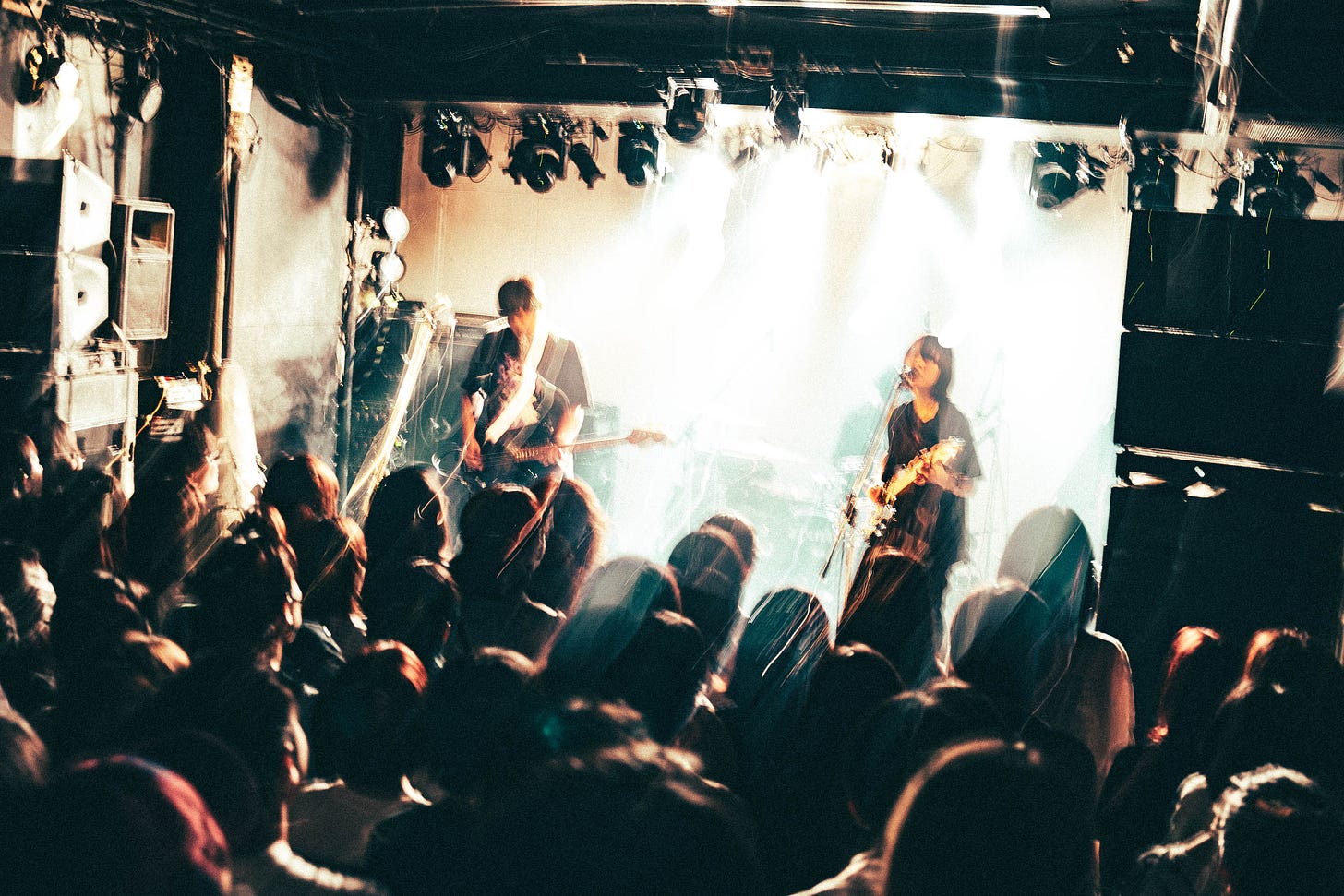
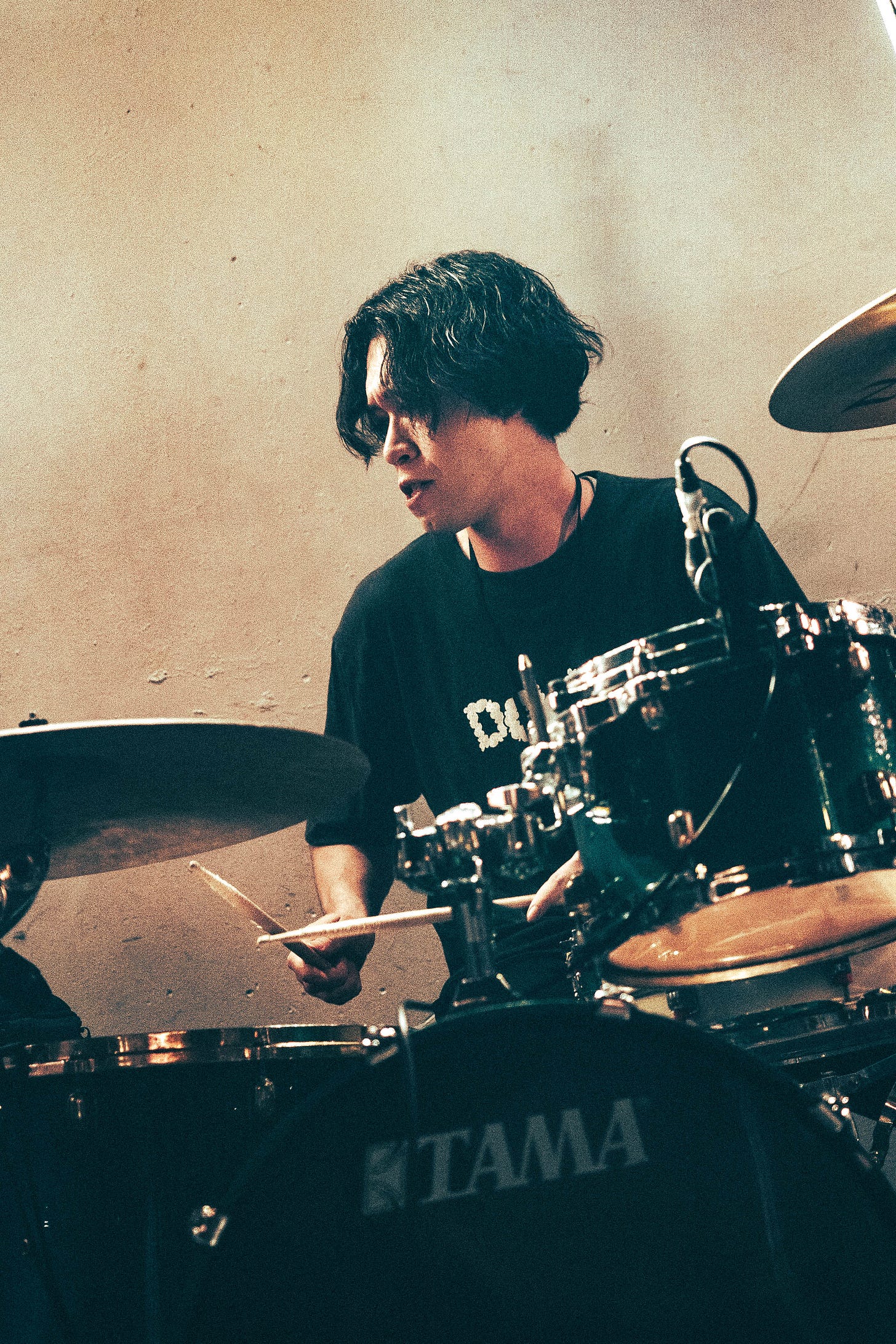
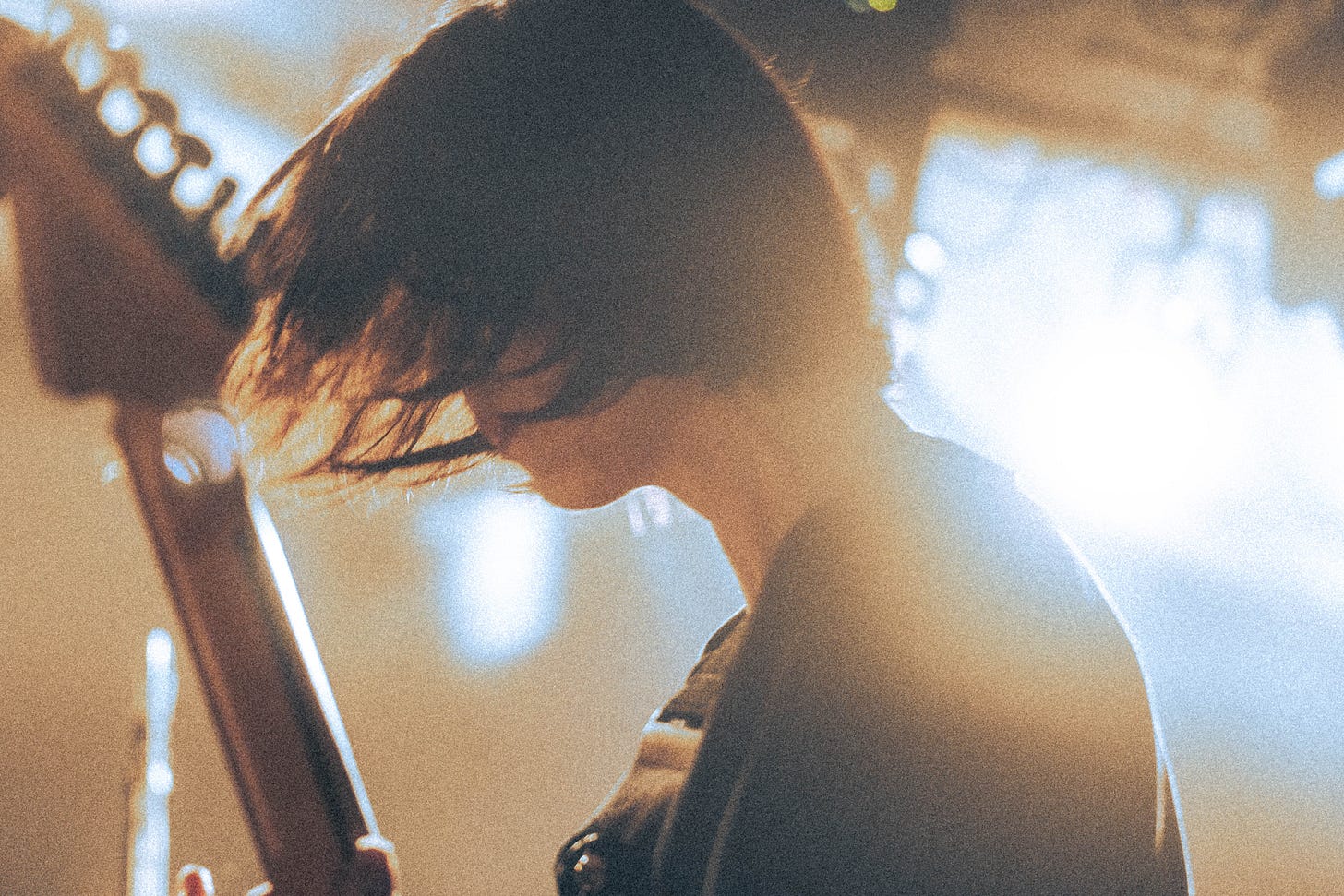
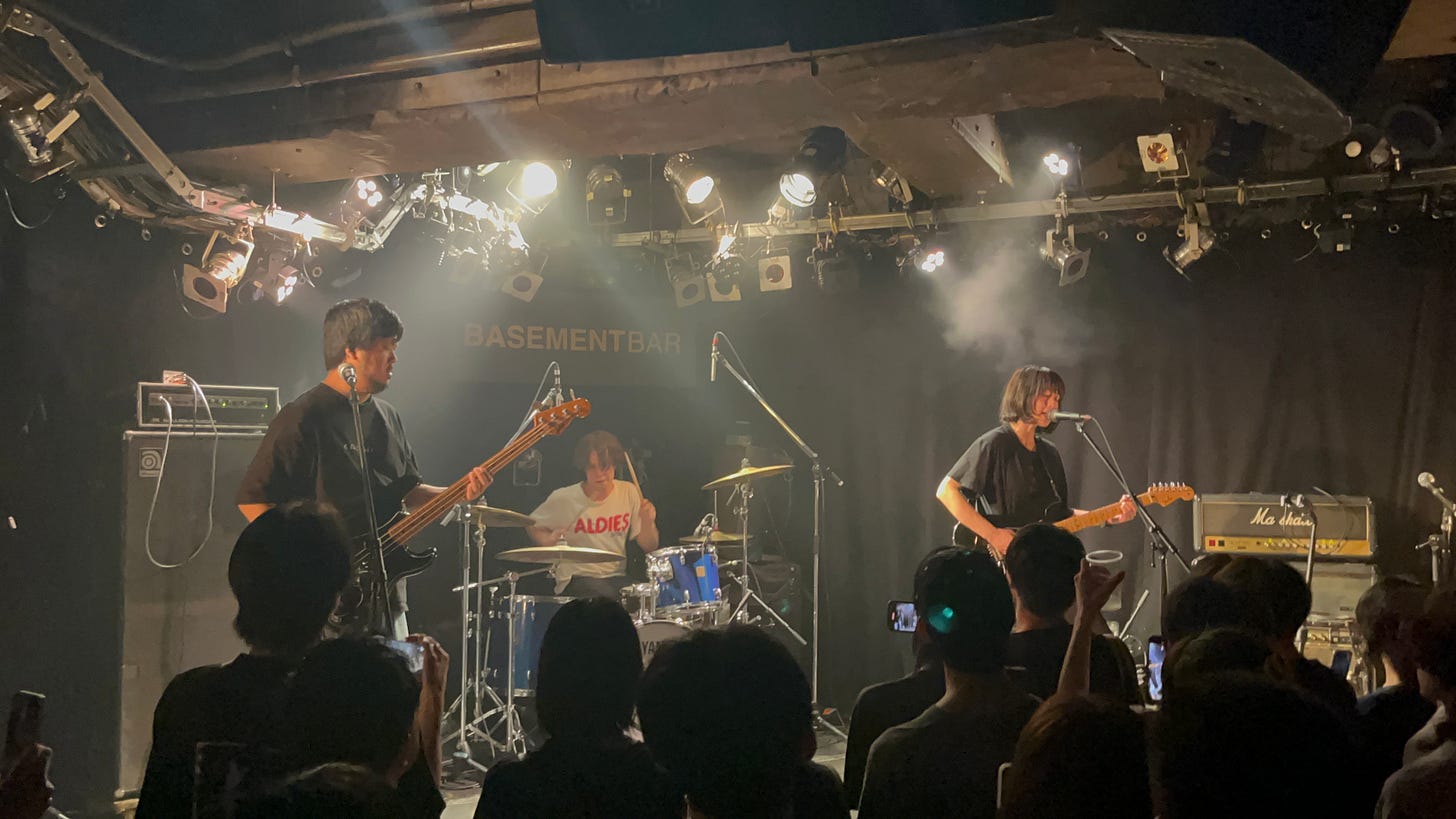
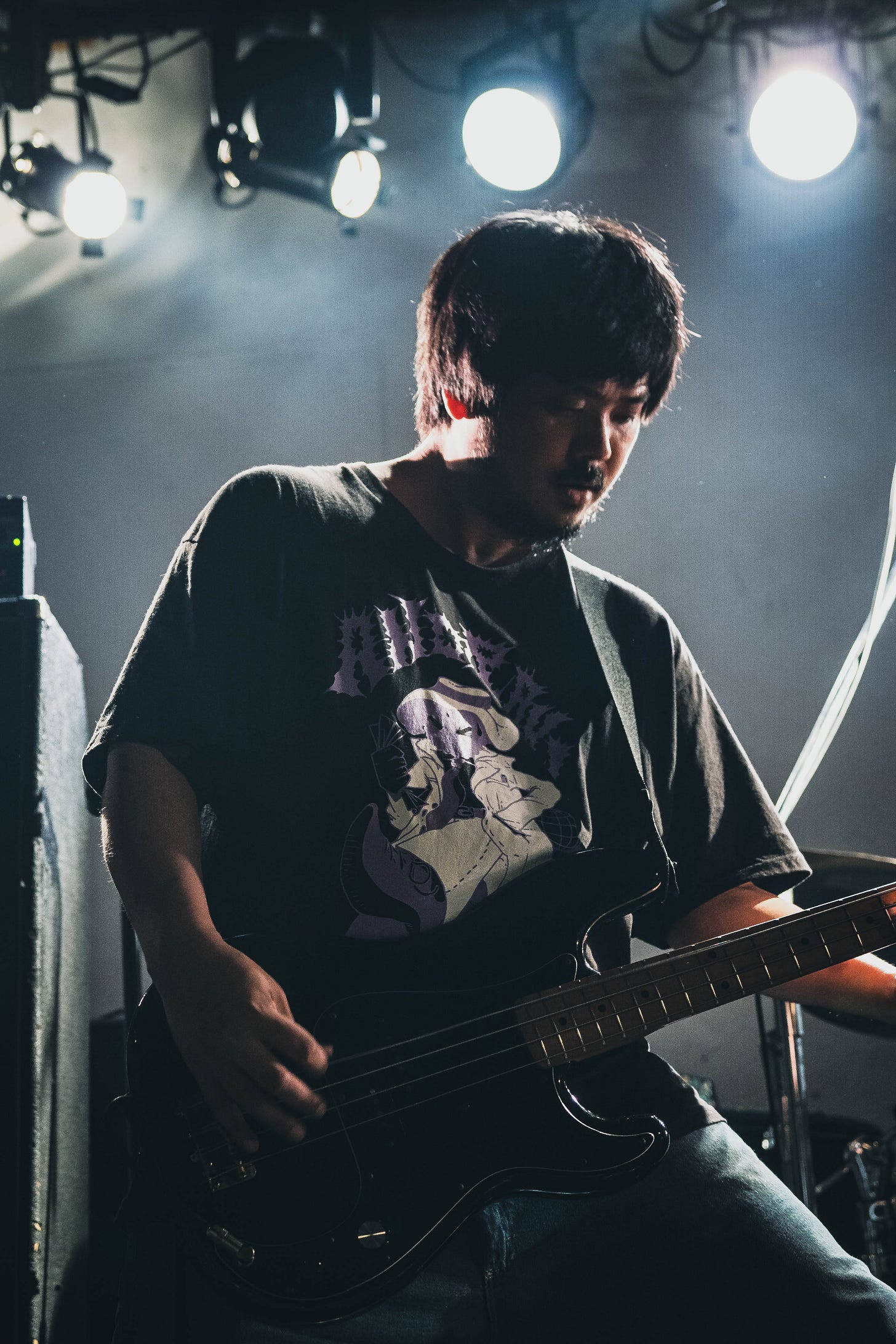
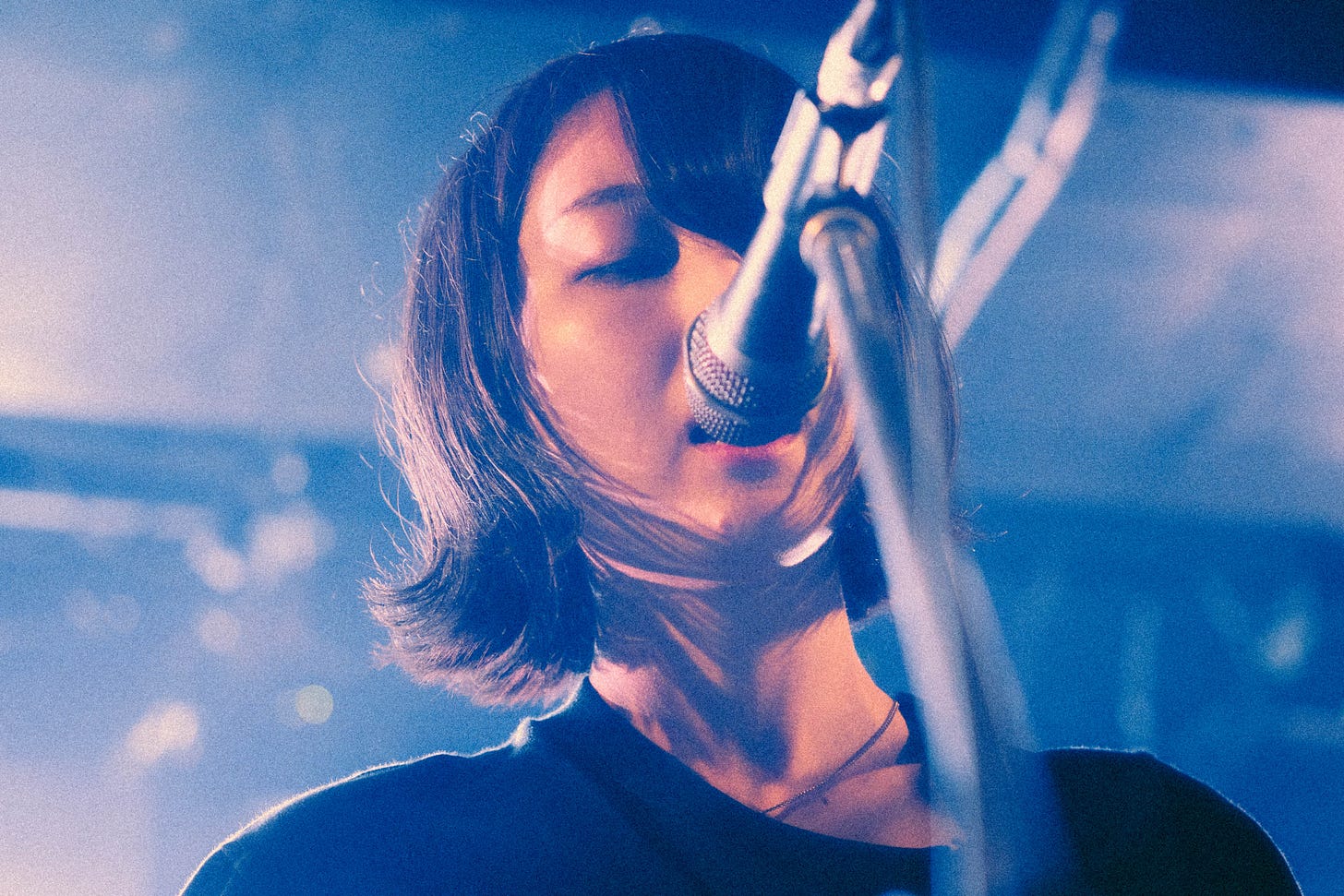
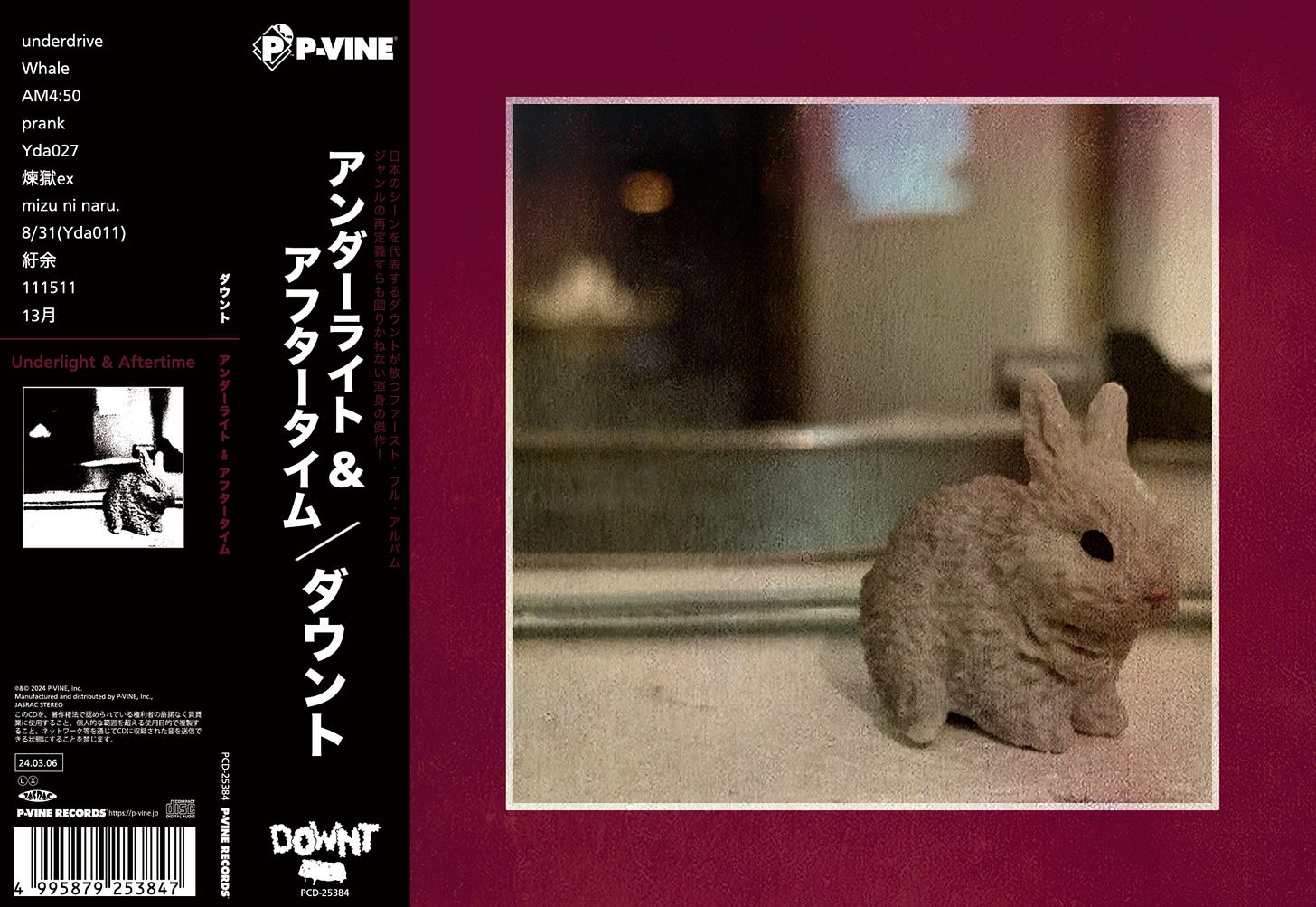
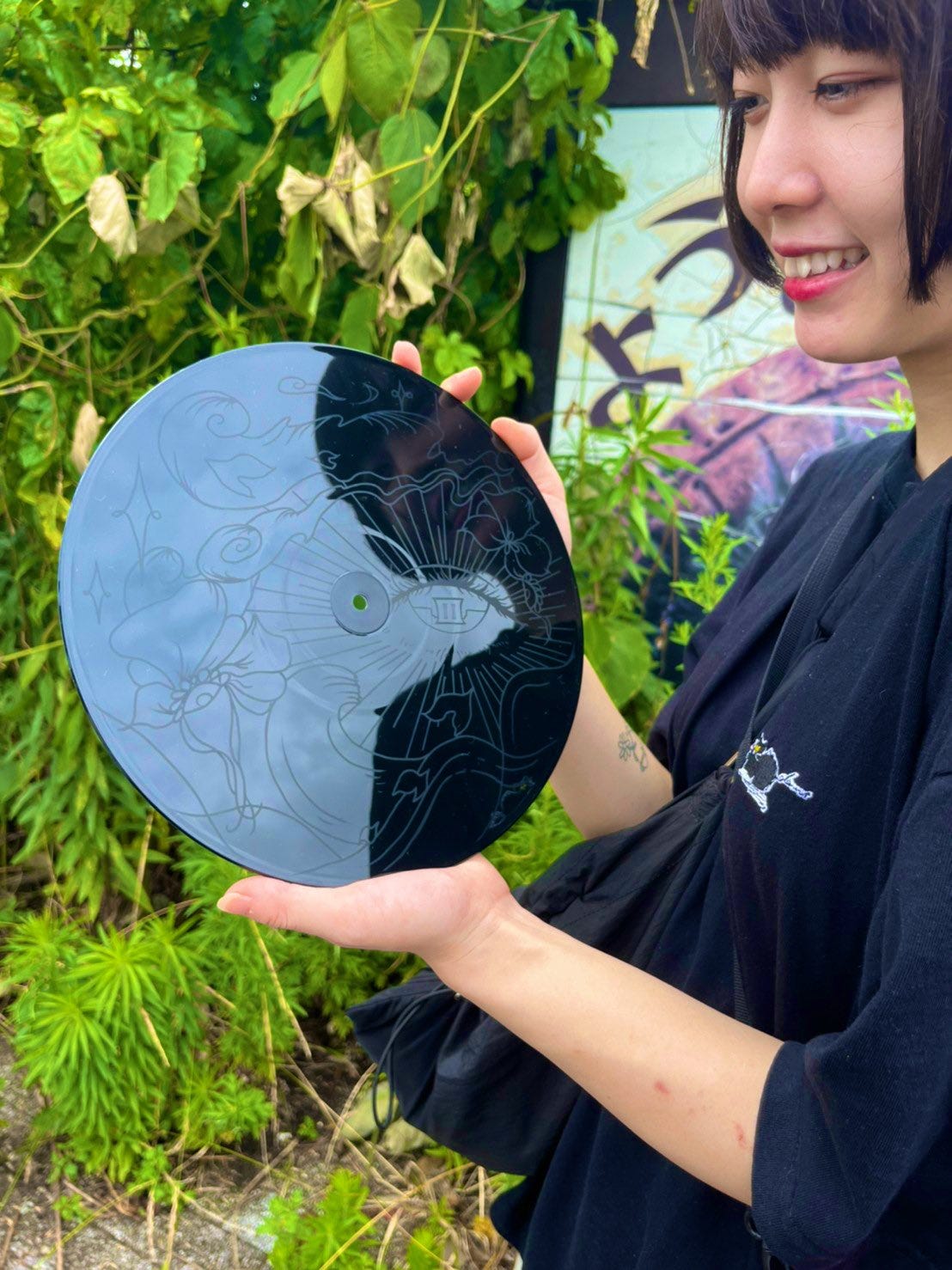
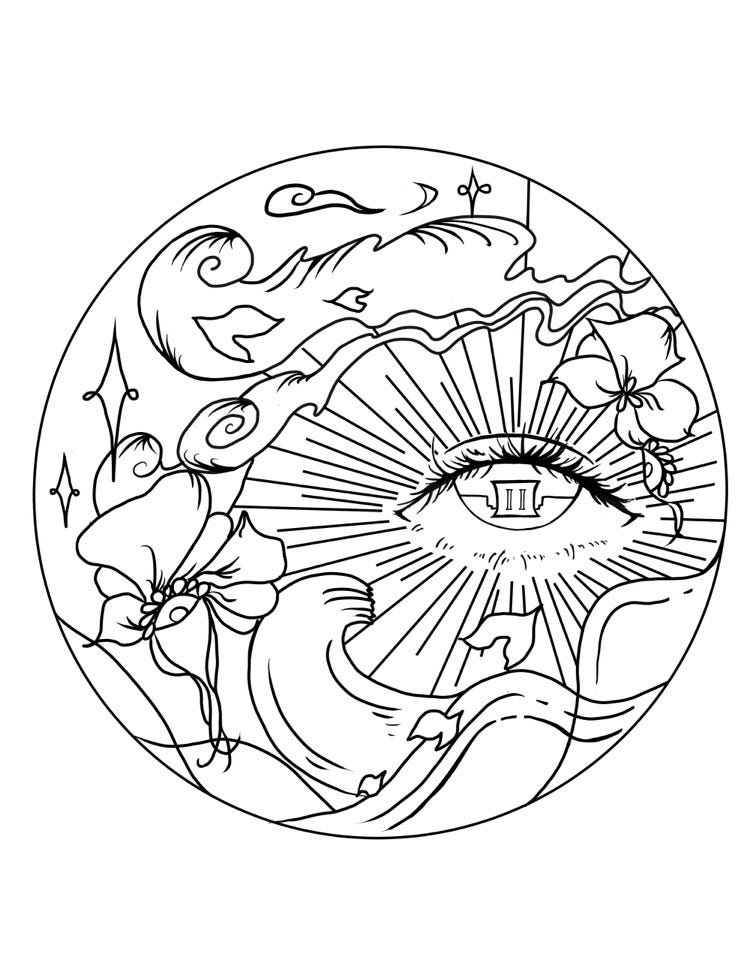

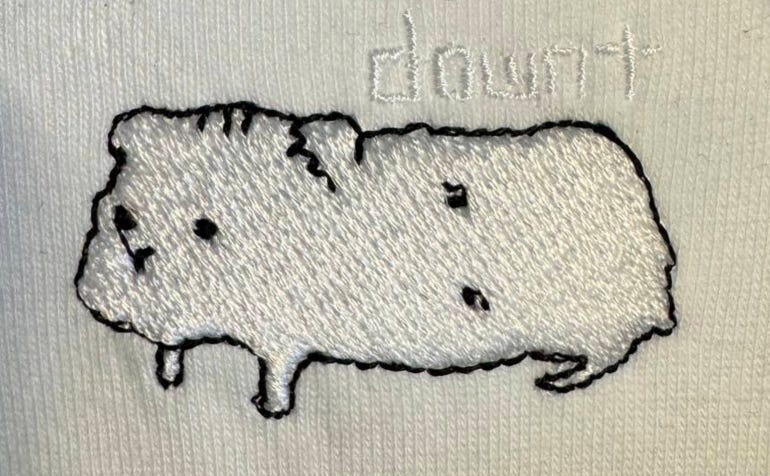
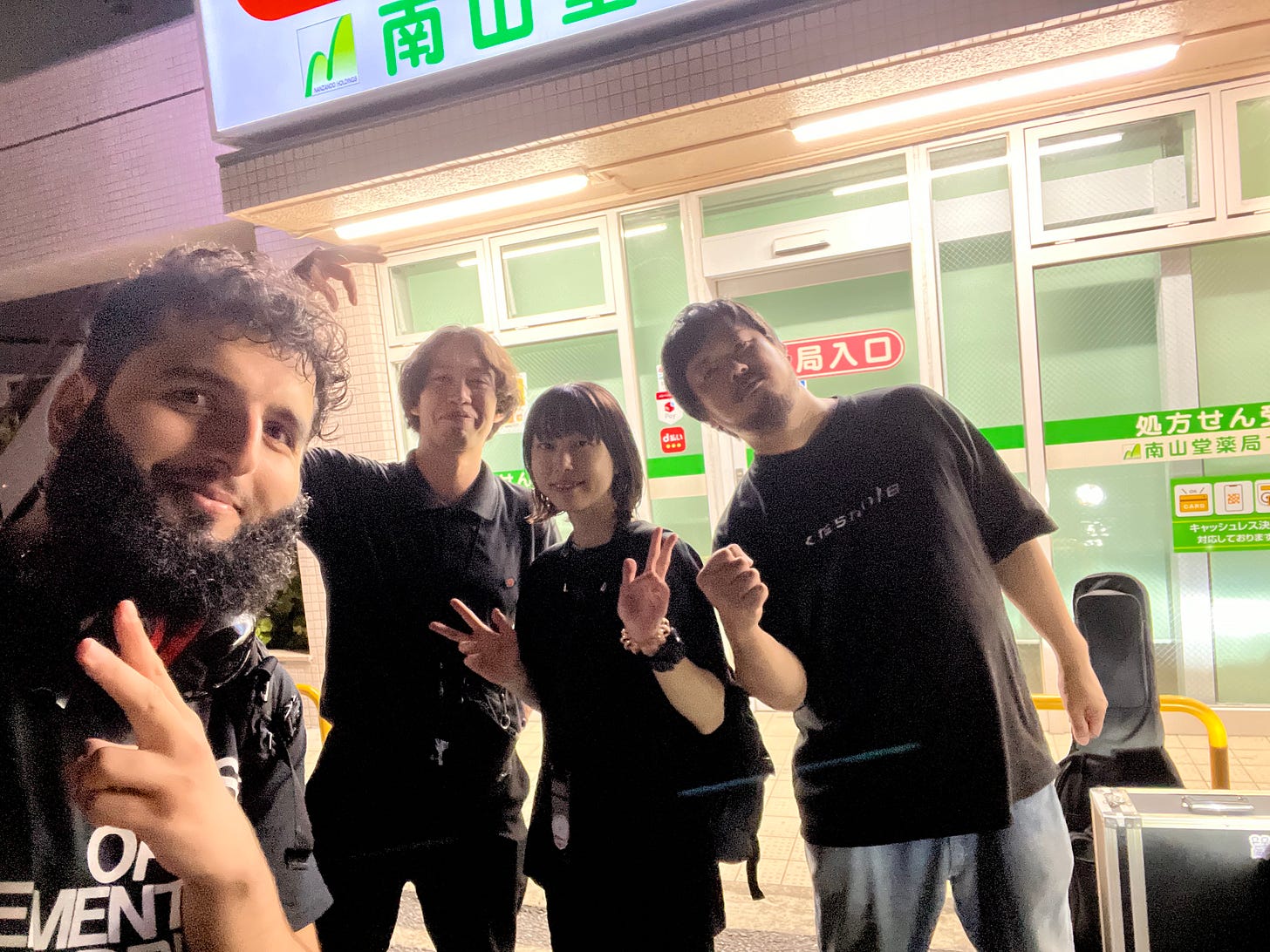
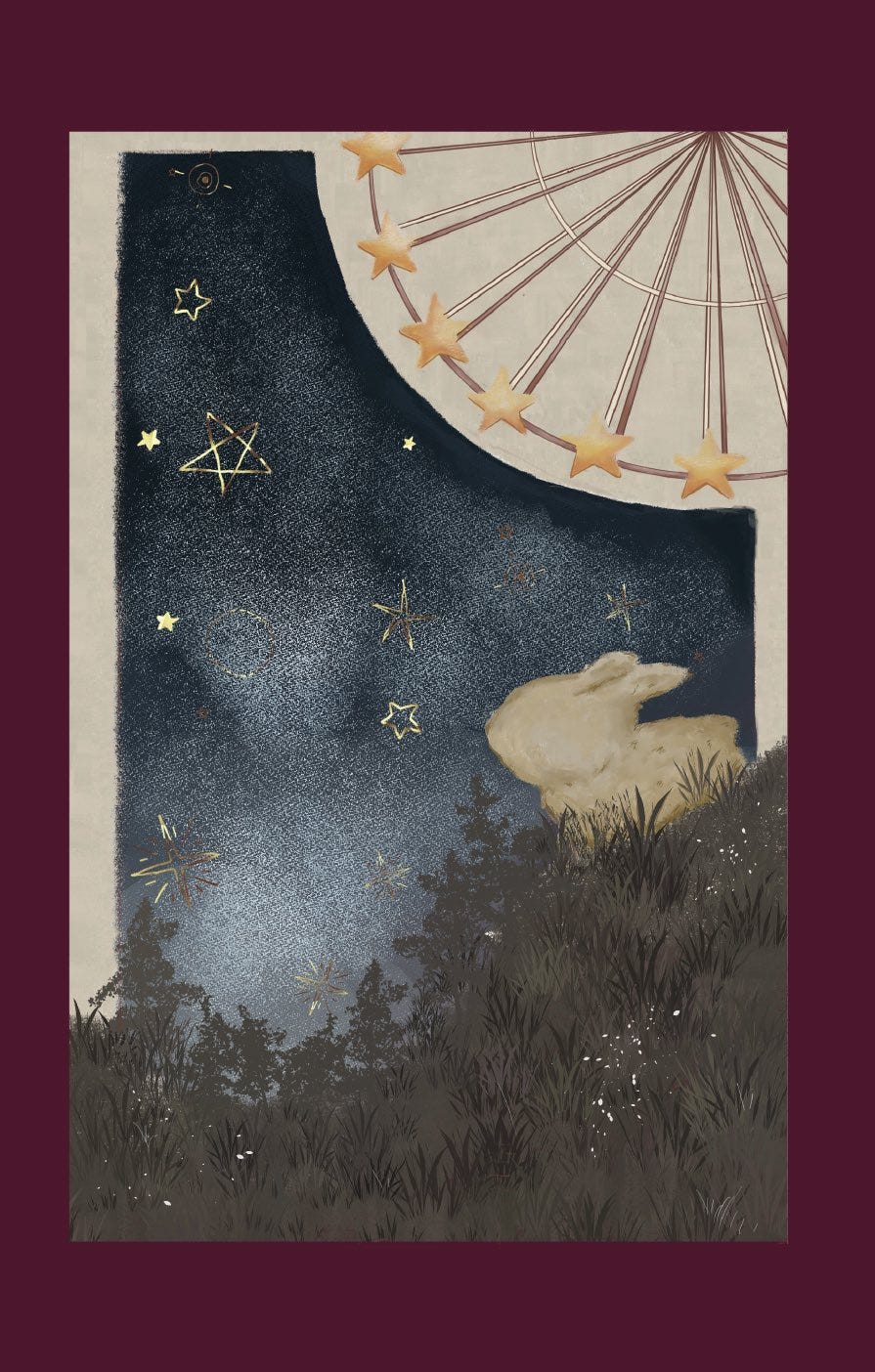
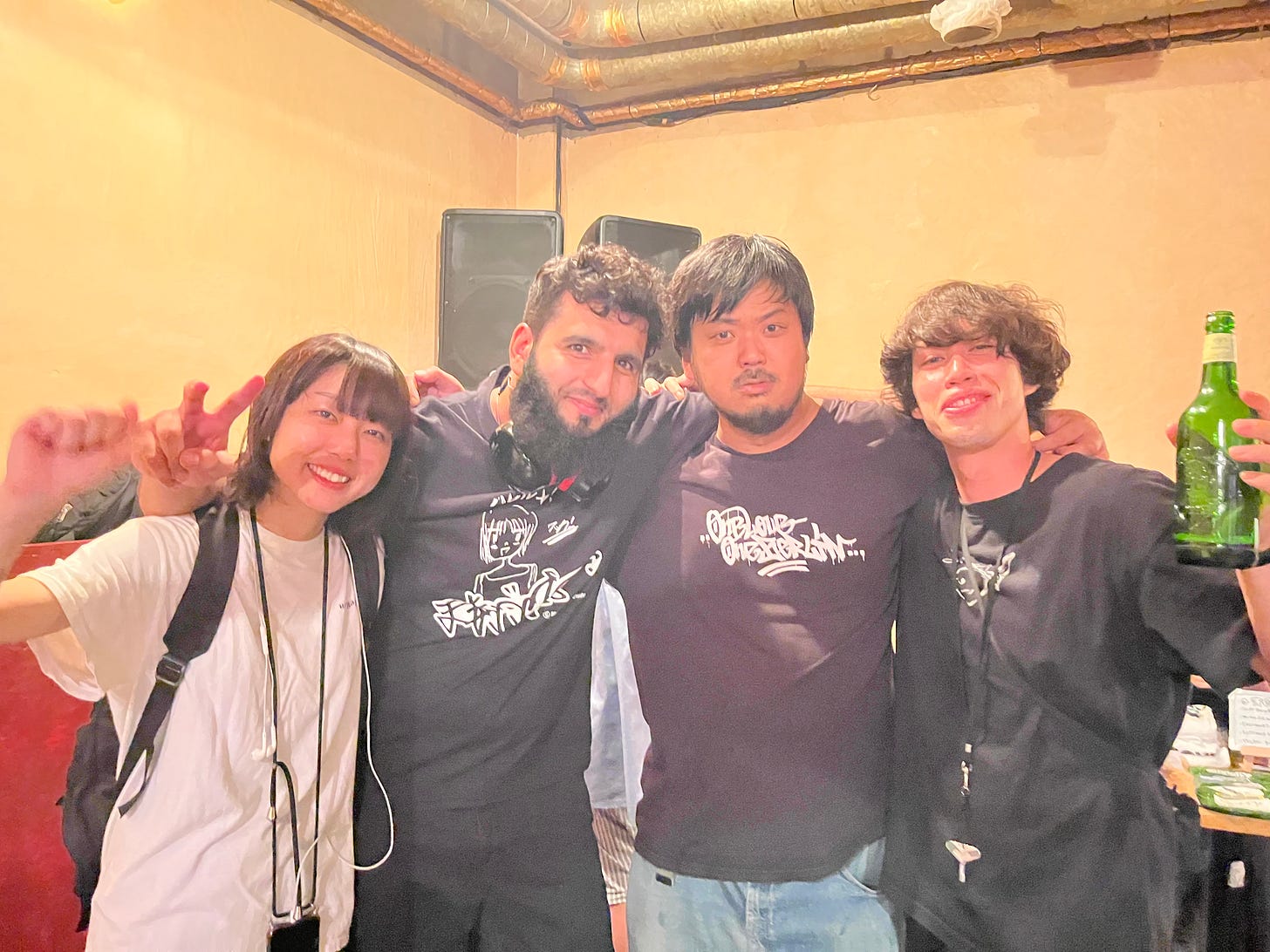
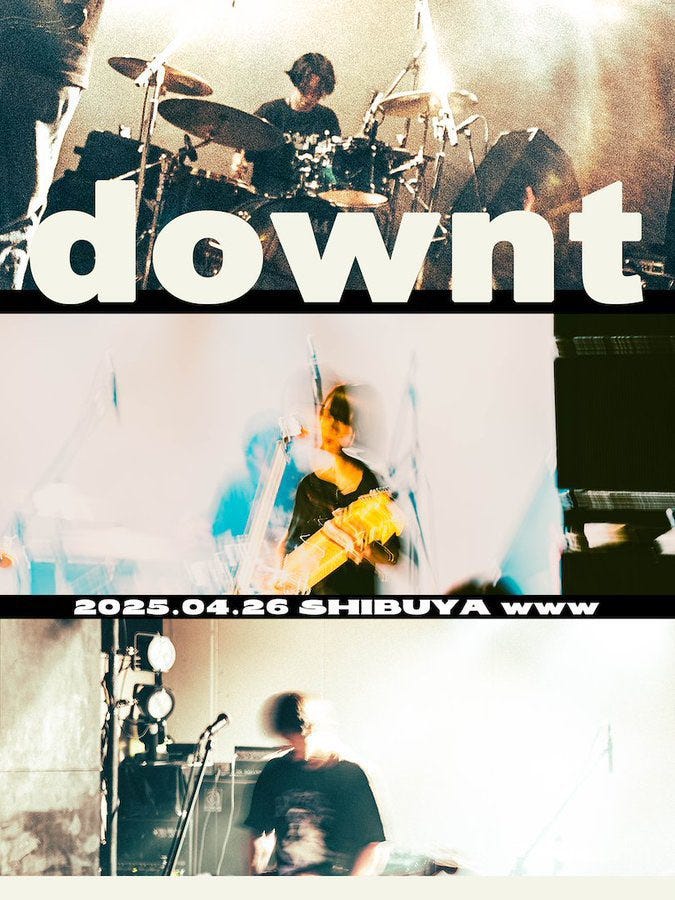
A lovely interview. I've had 111511 stuck in my head for the past year or even more and remember loving Whale as well. This is a reminder to revisit their discography to familiarize myself more with the rest!